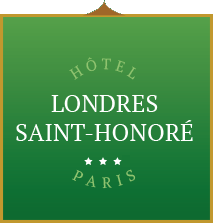Hotel Louvre Saint-Honoré
The Louvre Museum
Staying in Paris means having the privilege of exploring one of the world's most famous museums: the Louvre. Located just a few minutes from your hotel, this former royal palace is now a veritable temple of art and history, housing over 35,000 works of art.
As soon as you arrive, be impressed by the emblematic glass pyramid that stands proudly in the Cour Napoléon, contrasting with the classical architecture of the palace. Once inside, a journey through the centuries awaits you: from Egyptian antiquity to Renaissance masterpieces, via Greek and Roman sculptures.
A treasure trove of art and history just a stone's throw from your hotel
Among the must-sees are the Mona Lisa, whose mysterious smile fascinates visitors from all over the world, and the Venus de Milo and the Victory of Samothrace, symbols of ancient beauty. Stroll through the sumptuous Apollo Gallery, which inspired the Hall of Mirrors at Versailles, and immerse yourself in the history of France through the flats of Napoleon III.
As well as its prestigious collections, the Louvre is also a place to stroll and relax. Take a break in the Cour Carrée or the magnificent Jardin des Tuileries, ideal for a stroll after your visit.
Whether you're an art lover, history buff or simply curious, the Louvre is a unique experience to enjoy during your stay. Take the time to lose yourself in its galleries, admire its treasures and soak up the artistic soul of Paris.
